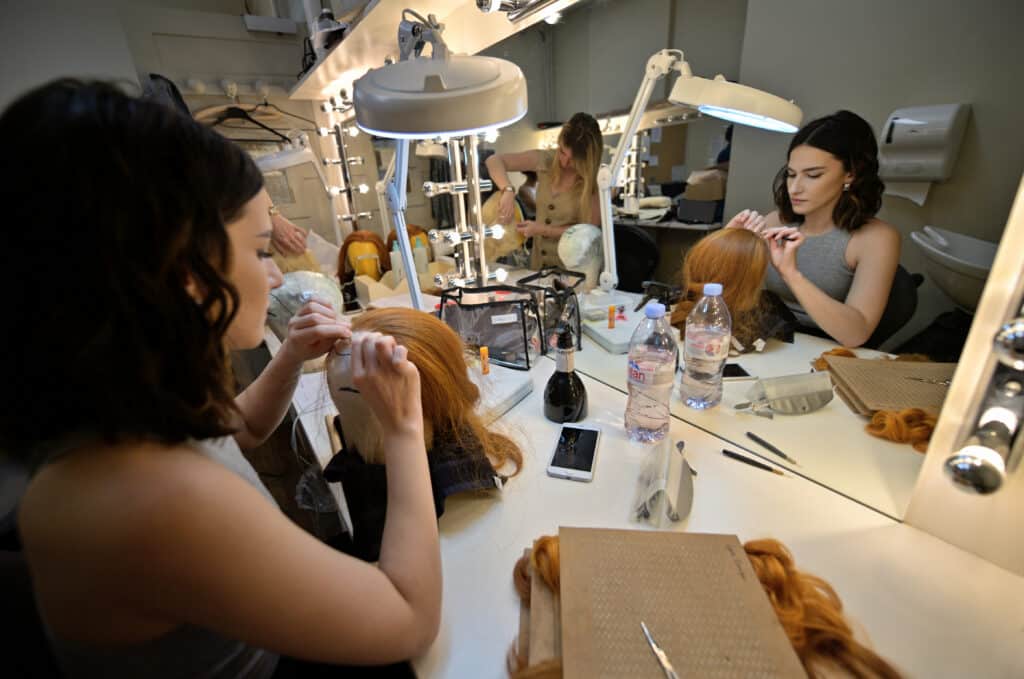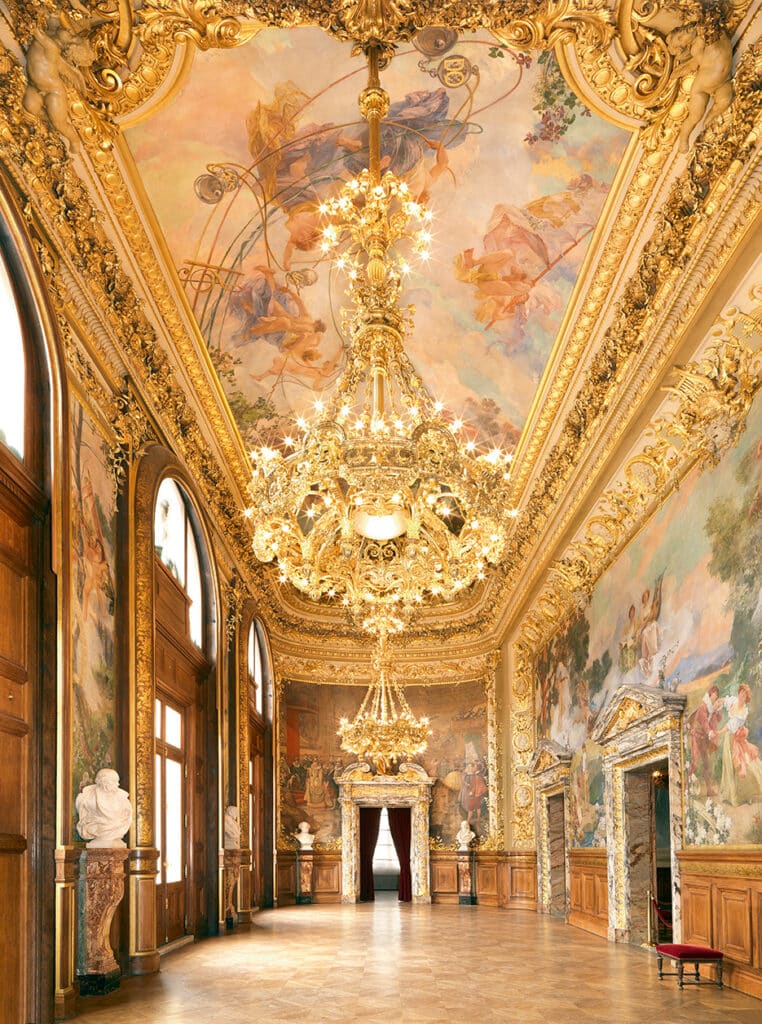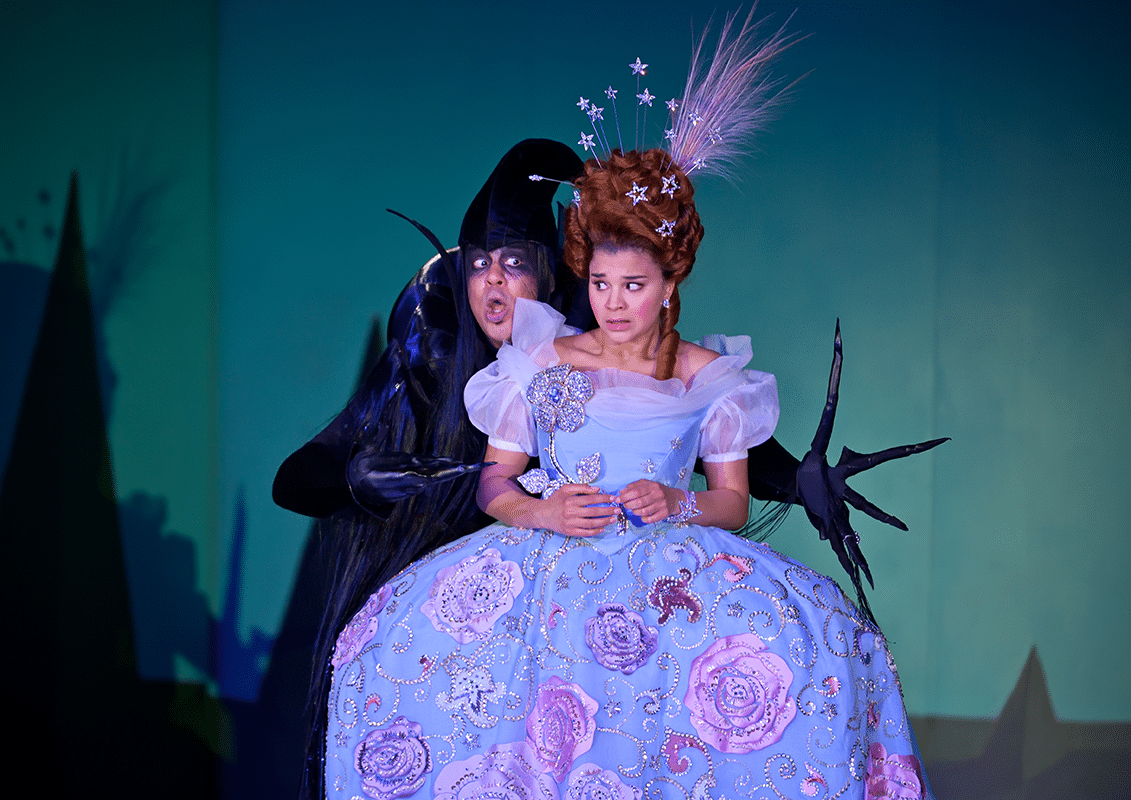Preserving the Opera’s Historical Heritage
An “opéra comique”, despite its name, is not always funny (although it can be), but it is always a combination of sung (opera) and the spoken word (“comédie” or “comique”). It is the true predecessor of the modern American musical. The Opéra-Comique started over 300 years ago under the reign of Louis the XIVth; it dates back to the 18th century. Flash forward to the 20th century, and the opera house held an uncertain future. During the time between the First and Second World Wars, subsidies were rare and funds were not available to promote French culture. For this reason, the Opéra-Comique was merged with the structure of the Paris National Opera. It quickly became a rehearsal space for the Paris Opera’s performances. In the 1980s, François Mitterand decided to build the Opéra de la Bastille which meant that there would be three opera houses in Paris. After deciding that Paris did not need three opera houses, plans were made to destroy the Opéra-Comique. Thankfully, a group of donors and international patrons, including Isabelle d’Ornano, David de Rothschild, and Lily Safra, saved it from destruction.
Today, the Opéra Comique remains one of the three major classical theaters in Paris, alongside the Comédie-Française and the Paris National Opéra. Over 3,000 works have been created here. “It is an institution for creativity, innovation, and creation,” commented Camille Claverie, head of philanthropy. Most of the famous French operas were created at Opéra Comique, including The Tales of Hoffmann, Manon, and Les pêcheurs de perles. These operas combine the traditional elements of dance, music, and singing. To preserve its historical heritage and keep it alive, some operas that are rarely performed are put back on stage. Every year, the Opéra-Comique performs one of these lesser known pieces. For example, Zémire et Azor, the story of Beauty and the Beast, had not been performed for over 100 years, but saw the stage in the summer of 2023!

Improving Inclusivity and Accessibility
Initiatives help those with disadvantages, including those facing employment difficulties, disabilities, or a childhood in a difficult neighborhood. These are some of the ways in which the opera house aims for inclusivity. For young people, there is an educational and social program called “La Maîtrise Populaire.” This is an academic and performing arts school in which young people between the ages of eight and 25 have the opportunity to learn music theory, piano, contemporary dance, sign language, and more. Half of them come from under-privileged neighborhoods. The students have between 12 and 18 hours of classes each week and each year, they perform extensively in France including on the stage of Opéra Comique. This gives these young people the opportunity to work in a group setting, learn many skills, and develop discipline. Another initiative for children is a yearly festival called “My First Opera Festival.” It provides families with an opportunity to go out and enjoy a show specially designed for young people.
Another amazing initiative is Opéra Comique’s RELAX performances. This is the first institution in France to provide RELAX performances, a form of art therapy. These sessions offer “an inclusive caring environment for people whose disability (including autism, multiple disabilities, mental or psychic disabilities, Alzheimer’s …) which may give rise to atypical and unpredictable behavior during the show.” Throughout the performance, both the artists and the audience are aware that some members of the audience may express unpredictable behavior, so they have adapted the opera house’s standard procedures so that their audience can freely express themselves without fear of others’ judgments. “These performances are for those not often welcomed in an opera house. We wanted them to come and feel comfortable. We created this program and these special performances in a way so that they could be a part of the audience,” explained Claverie.
In general, there is a focus on mental health and mental disabilities. The Minister of Culture selected the Opéra-Comique to be a “projet pilote,” meaning a “pilot project.” The Opéra-Comique was the first opera house to implement relax performances and so they will produce guidelines for others to do it in their institutions. Five or six other main institutions will follow in their footsteps, like the Paris Philharmonic, Paris Opera, and National Opera of Bordeaux. However, the Opéra-Comique was the first to be completely autonomous and independent in executing this project. They happily share all the advice they can with other institutions. “Today we are a smaller opera house that continues to be innovative and influential. Many social impact projects were born in this institution and now influence other opera houses and institutions,” concluded Claverie.
Future at Opéra-Comique
Recently, Louis Langrée, music director of the Cincinnati Symphony Orchestra, became the new general manager. After 21 years as the director of the Mostly Mozart Festival, he said goodbye to Lincoln Center. In August 2023, Friends of Fondation de France took part in a French-American Friendship Afternoon Tea at Villa Albertine with the Opéra-Comique and Langrée, to welcome him to this new position. He is a prestigious conductor and the opera house is glad to have him. “We want to show that there is a need for a revolution and that Opéra Comique’s repertoire can be transformed, as it is not as well known as other repertoires, but is one of the most beautiful,” remarked Claverie. They have confidence that Langrée will rise to this opportunity.
An issue that the opera has run into is that today’s operas consist of only singing, but originally in the Opéra-Comique, actors would talk as well. “Today’s singers cannot talk like actors, so we sometimes lose the traditional version of many operas, like Carmen. We want to perform them like they were created,” mentioned Claverie. She also mentioned that there was a need to create an academy for young talents. The Academy of the Opéra Comique was created to train young artists to be able to combine acting and singing. This September, they accepted many applications, including those from the United States. A hope they have is to strengthen links between the United States and Opéra Comique. The idea is to have exchanges in the United States with academy members, laureates, and the Maîtrise Populaire.

Partnering with Friends of Fondation de France
The Foundation of Paris Opéra Comique was created 15 years ago. Ever since, the Foundation has been finding ways to improve how the opera can be more inclusive and accessible to all. Donations from generous donors help fund and promote programs aimed at including young people and those with disabilities, such as the Maîtrise Populaire and RELAX performances, as well as give young talents an opportunity to see the stage, like the academy. If you are interested in supporting a specific project or imagine a particular project, contact the opera house directly. You can contact the Director of Philanthropy & Development, Camille Claverie (camille.claverie@opera-comique.com), or the Philanthropy Coordinator, Marion Minard (marion.minard@opera-comique.com). If you wish to give, thanks to Friends of Fondation de France, U.S. donors who value the work of The Foundation of Paris Opéra Comique can support their ambitions and make tax-deductible gifts to the fullest extent of the law.



